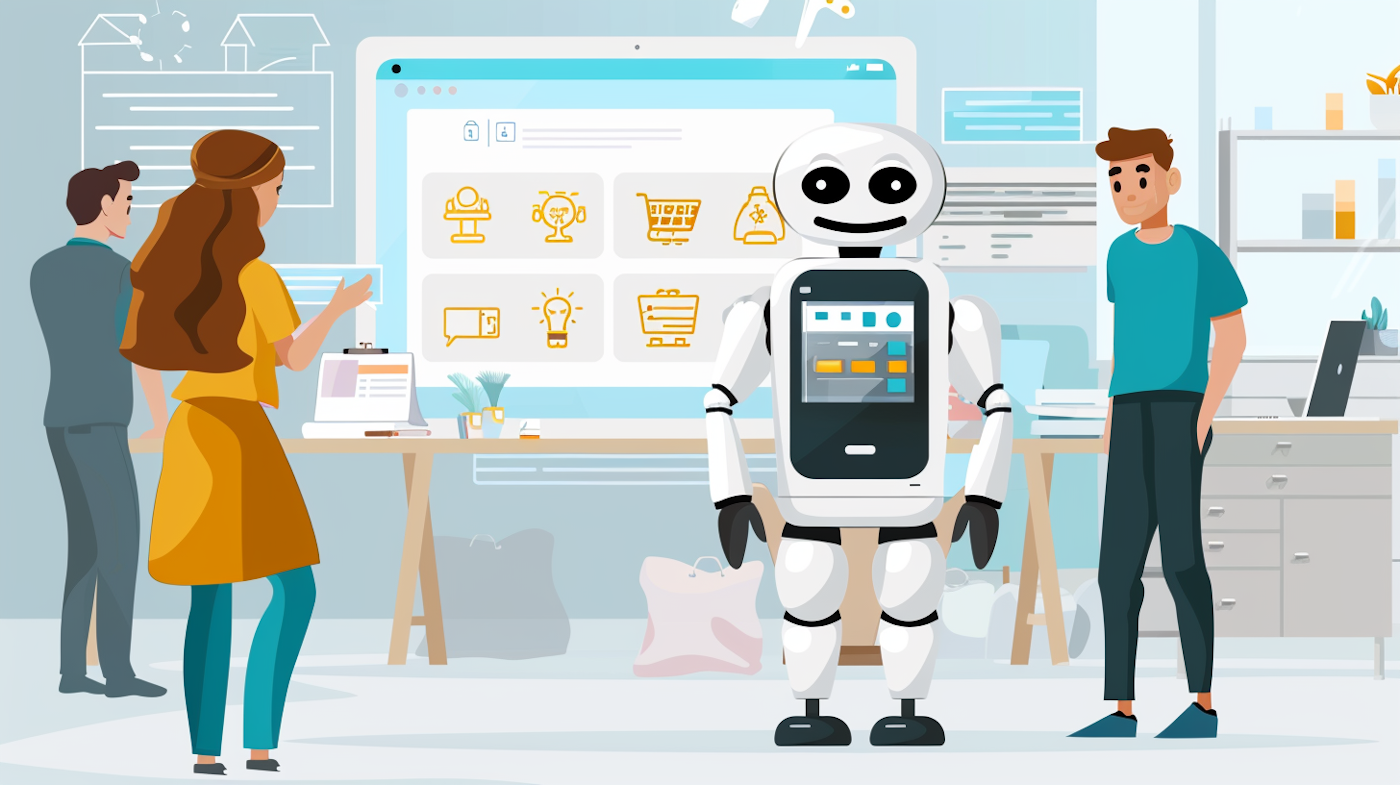Effectiveness of AI Sales Chat Bots
Are your sales strategies evolving with the AI transformation?
The introduction of artificial intelligence has reshaped the sales and customer engagement sector, ushering in AI chatbots as essential tools in the sales process. With advanced capabilities that go beyond simple automated responses, these intelligent digital assistants are creating a new form of interaction between businesses and their customers. This article examines the transformative impact of AI chatbots on sales metrics, focusing on their evolution, integration, and the refinement of their conversational abilities. As we explore the strategic combination of AI technology with sales goals, we reveal how these innovative tools are improving customer experiences and setting new standards for successful conversions and engagements. Peering into the future, we consider the latest trends in AI that are likely to influence sales strategies, while also weighing the importance of maintaining a balance between technological efficiency and the essential human element.
The Evolution of AI Chatbots in Sales
AI chatbots in sales have transitioned from offering basic automated responses to providing personalized and complex solutions. These sophisticated systems utilize natural language processing and machine learning to engage customers effectively. The report by Gartner suggests that by 2027, AI chatbots will redefine customer engagement globally. The evolution has been driven by advancements in deep learning and predictive analytics, enhancing the chatbots' learning capabilities from customer interactions. Unlike traditional sales methods, AI chatbots deliver 24/7 service with immediate responses, a feature that has become increasingly valuable for businesses.
Measuring the Impact: Conversion Rates and Customer Engagement
Conversion rates are a crucial metric in evaluating the effectiveness of sales strategies. AI chatbots have proven their worth by significantly improving these rates. Over 56% of businesses reported at least a 10% increase in conversion rates, thanks to chatbot interactions. This increase is a clear indicator of the role AI chatbots play in smoothing the customer journey. Moreover, personalized interactions facilitated by AI have led to higher customer engagement and sales, as demonstrated by Coca-Cola's 7% sales increase after implementing AI-powered tools.
Behind the Scenes: Integrating AI Chatbots into Sales Funnels
Integrating AI chatbots into sales funnels is a strategic process that requires alignment with the company's sales goals. The chatbot must be tailored to respond appropriately at different customer journey stages, from awareness to decision-making. An important element of this integration is the smooth transition from chatbot to human sales representatives when complex issues arise. This ensures that the customer experience remains positive and the sales momentum is maintained.
"So, when I think about AI chatbots for sales, the thing that's most important to me is I want the chatbot to actually do something for me and help me out. If I'm trying to process a return on fanatics.com, for example, say I ordered the wrong size, when that chatbot asks if it can do anything for me, I want to just say, hey, can you set up a return for order number 693541? I want the chatbot to actually say, sure, and let me get that started for you and take me right to the page where I'm putting in my return," says Nick Rizzo, Customer Success, Captain.
Optimizing Interactions: The Fine-Tuning of AI Chatbots
An effective AI chatbot is not created overnight. It requires continuous optimization based on customer feedback and data analysis. These chatbots can collect and utilize data to improve user experiences by understanding customer preferences and behaviors more deeply. Predictive capabilities of AI chatbots also stand out, as they can offer proactive solutions, reinforcing customer loyalty and satisfaction.
"I had a great experience recently staying at a hotel... where they had a chatbot that messaged me the morning I was leaving and asked if I needed anything, and I asked if it could give me a noon checkout instead of 11 a.m., and the chatbot actually just did it for me," notes Nick, highlighting the practical value chatbots can offer.
Looking Ahead: The Future of AI in Sales Strategies
The future of AI in sales is filled with potential, as chatbots are expected to manage more comprehensive aspects of customer relationships. They may autonomously predict customer needs, recommend products, and handle upselling without human input. AI's role in sales will likely lead to more predictive sales approaches and focused customer retention initiatives. However, it is essential to balance automation with the human element to maintain genuine customer relationships.
The Transformative Impact of AI Chatbots on Sales Success
AI chatbots have become essential in driving up conversion rates and improving customer interactions. Their progression from basic automated responders to advanced personal assistants highlights their increasing importance in sales tactics. Businesses that utilize these AI innovations report significant increases in sales, a testament to the chatbots' ability to adapt from interactions and provide continuous service. The careful integration of chatbots into the sales process is crucial, ensuring they support and enhance the customer journey at every stage while allowing for smooth human engagement when needed.
The future of AI in sales looks bright, with chatbots set to undertake more intricate tasks in customer relationship management. They are at the forefront of a new phase in sales, where predictive analytics and tailored service merge to offer unparalleled customer experiences. Yet, it's essential to keep the human aspect in the midst of this technological advance to ensure genuine customer relationships are maintained. As chatbots become more embedded in sales strategies, they don't merely alter the way we connect with customers—they establish a new standard for customer satisfaction and loyalty, underscoring that the zenith of sales success is found in the blend of human warmth and AI proficiency.
From the Experts

"So, when I think about AI chatbots for sales, the thing that's most important to me is I want the chatbot to actually do something for me and help me out. I go to a lot of websites where they have a little chatbot at the bottom right corner of the screen, and it says, hi, I'm so-and-so, how can I help you today? I guess I'm skeptical that it's really going to do anything. I think I'm just going to type in a question, and it's going to send me a link to a generic FAQ or help or how-to article. So, what I really want is for it to do things for me and make my life easier. So, if I'm trying to process a return on fanatics.com, for example, say I ordered the wrong size, when that chatbot asks if it can do anything for me, I want to just say, hey, can you set up a return for order number 693541? I want the chatbot to actually say, sure, and let me get that started for you and take me right to the page where I'm putting in my return. So, I had a great experience recently staying at a hotel, actually, where they had a chatbot that messaged me the morning I was leaving and asked if I needed anything, and I asked if it could give me a noon checkout instead of 11 a.m., and the chatbot actually just did it for me. It didn't transmit for me to a representative, it didn't send me to an FAQ article about what time the checkout usually it is, it just took care of it for me and I was done. So, that's where I think sales chatbots can really add value is by reducing the friction in customers just being able to get things done."




